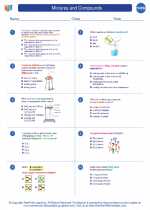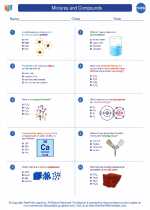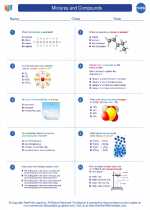Autotrophs
An autotroph is an organism that can produce its own food using inorganic substances and energy sources such as sunlight. They are also known as producers because they produce organic compounds from simple inorganic molecules.
Types of Autotrophs
There are two main types of autotrophs:
- Photosynthetic Autotrophs: These organisms use sunlight to convert carbon dioxide and water into glucose and oxygen through the process of photosynthesis. Examples include plants, algae, and some bacteria.
- Chemosynthetic Autotrophs: These organisms obtain energy from inorganic chemical reactions. They can be found in environments such as deep-sea hydrothermal vents, where they use the energy from chemical reactions involving compounds like hydrogen sulfide to produce organic molecules.
Importance of Autotrophs
Autotrophs are crucial for the survival of all other organisms in an ecosystem. They form the base of the food chain, as they provide energy and organic compounds for heterotrophs (organisms that cannot produce their own food) to consume. Additionally, autotrophs play a vital role in the global carbon cycle by removing carbon dioxide from the atmosphere and converting it into organic matter.
Study Guide
To study autotrophs effectively, consider the following key points:
- Understand the process of photosynthesis in detail, including the reactants, products, and the role of chlorophyll.
- Explore different types of autotrophic organisms and their adaptations to their respective environments.
- Learn about the significance of autotrophs in the ecosystem and their interactions with other organisms.
- Consider the impact of environmental factors such as light intensity, temperature, and water availability on autotrophic activity.
- Examine the role of autotrophs in human activities, such as agriculture and biotechnology.
◂Chemistry Worksheets and Study Guides High School. Mixtures and Compounds
Worksheet/Answer key Mixtures and Compounds
Mixtures and Compounds  Worksheet/Answer key
Worksheet/Answer key Mixtures and Compounds
Mixtures and Compounds  Worksheet/Answer key
Worksheet/Answer key Mixtures and Compounds
Mixtures and Compounds 

 Worksheet/Answer key
Worksheet/Answer key
 Worksheet/Answer key
Worksheet/Answer key

The resources above cover the following skills:
Chemistry II
Properties of Matter
Develop and use models to explain the differences between chemical compounds using patterns as a method for identification.
Use mathematical representations to quantify matter through the analysis of patterns in chemical compounds.